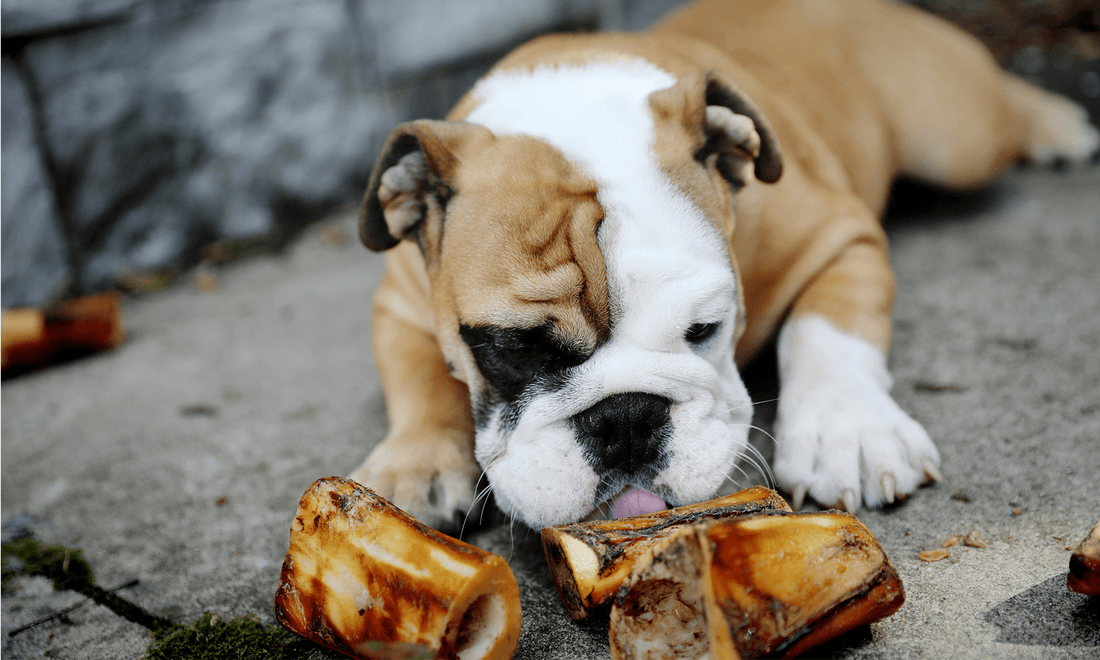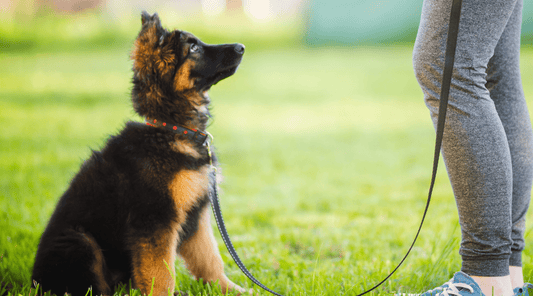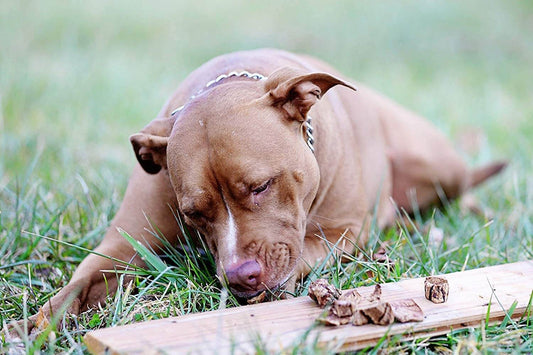Are Marrow Bones Safe for Dogs? I Wish All My Friends Knew This
Dawn Miller Jul 29, 20245 Minute ReadThe early morning sun was peeking through the trees as I sipped my coffee on the porch, watching my three dogs happily chewing on their marrow bones. This is a common scene at our house. And I often get asked by friends and family members, "Are marrow bones safe for dogs?"
And I can confidently tell them, "I did my homework." I would never give my furry family unsafe dog treats. These dogs have become my kids since my real ones left for college. I know exactly what I'm doing when I give them dog bones.
So, I'm here today to dispel the myths about marrow bones I've found online.
Myth #1: Marrow Bones Are High Fat
I'll start with a myth that is sort of true. Bone marrow is high in fat.
But there's a big but!
If there's one thing we've all learned since the 1990s/early 2000s, it's that some fats are healthier than others. Polyunsaturated fats, such as omega 3 and omega 6, are generally considered "healthy fats." Omega 3 is good for the brain, skin, and heart, while omega 6 is critical for a healthy immune system.
According to USDA.gov, half of the fat in grass-fed marrow bones for dogs is polyunsaturated fat and monounsaturated fat (omega-9).
I don't want to suggest that, just because they're "healthy," my dog should eat endless amounts of fat. That can put a strain on the pancreas. Yet, even drinking too much water is not safe.
Grass-fed marrow bones contain the kind of fat I want my dog to get more of.
I never worry that my dogs won't be photo-shoot-ready because they enjoy marrow bones in moderation.
Free Marrow Refill Recipe Guide
Myth #2: Cooked Marrow Bones Are Unsafe
It's true that cooking the wrong type of bone or cooking a dog bone the wrong way makes it too soft. It can splinter and damage the digestive tract. That is definitely not safe!
But are marrow bones safe for dogs if they are cooked? They can be if you follow some simple rules:
Choose the right type of dog bone. Chicken and turkey bones are two soft. So are small animal bones like those of squirrels or rabbits. If my dogs catch a small animal in our wooded backyard, I offer them a marrow bone in exchange. Even swine bones are not recommended for dogs. Beef marrow bones are best.
Make sure it's cooked correctly. The right cooking process kills pathogens and softens the bone just slightly so it doesn't damage teeth. Bones should be cooked at a slow and low temperature to maintain the tasty, meaty bits my dogs love while making the bone safer to enjoy.
Myth #3: Raw Marrow Bones Are Unsafe
Now, they can be. Some people buy raw beef bones for their dogs. They have to keep them in the freezer. And they are single-use. So after 15-20 minutes, you're supposed to throw it away because, like any raw meat, it will grow pathogens.
There are a couple of reasons I personally do like to get raw bones for my babies. For one, they're on the expensive side, and I cannot give them to my dogs once to be safe. When bones are cooked properly, you can give your dog the same bone several times.
I like to get my money's worth.
The second reason I don't get the raw ones is that my pups are part of my family. They run in and out of my house and lick my face. I wouldn't drag a raw steak all over my house, and I don't want my dog to do that, either.
Myth #4: Dog Bones Are a Choking Hazard
So, yes. There is some risk here. But I call it a myth because you can take precautions.
I always make sure the bone is correctly sized for your dog. If the dog bone can fit in your dog's mouth, then they could accidentally swallow it.
Next, you shouldn't let your dog have the bone for more than 15-20 minutes in one gnawing session. This reduces the risk that they gnaw in the same place and break the bone. Now, it's not easy to wrangle a dog bone out of my pup's mouth, so what I do is I buy beef lung bites. I can offer them a treat, which makes them drop the bone so I can safely put it away until next time. Lung bites are also healthy treats for dogs.
Finally, if the bone breaks, take it away.
Bonus tip: If you have an aggressive chewer that tears through most bones in minutes, look for dog bones from aggressive chewers.
Myth #5: You Can Give a Dog a Bone Unattended
We've all watched dogs in movies that run off with their bones to gnaw for hours and bury them in the backyard. While it is true that dogs will do this, most veterinarians recommend not giving your dog free access to their dog bone.
My dogs enjoy their bones while I'm sitting outside in the backyard with them. That way, I can watch as they chew on their healthy dog bones to be absolutely sure the bone doesn't become unsafe.
Myth #6: Bone Marrow for Dogs Is Just a Treat
Marrow bones for dogs are healthy dog bones. They offer many benefits you don't get when your typical dog treats.
Nutritional Value
Bone marrow is a powerhouse of essential nutrients that support your dog's overall health:
They're rich in vitamins A, K2, and B12, crucial for vision, bone health, and red blood cell formation.
They contain important minerals like iron, zinc, and manganese that aid in various bodily functions, including immune system support.
They are a good source of healthy fats, vital for energy and maintaining a healthy coat, skin, brain, and immune system.
Joint Health
The collagen found in bone marrow supports joint health by maintaining the integrity of cartilage. This can help reduce the risk of arthritis and other joint issues, especially in aging dogs.
Dental Health
Chewing on marrow bones helps keep your dog's teeth clean by reducing plaque buildup. It also massages the gums, promoting overall dental health and preventing bad breath.
Digestive Health
The gelatin in bone marrow supports a healthy gut lining. This can aid in digestion and help prevent gastrointestinal issues, making it beneficial for dogs with sensitive stomachs.
Mental Stimulation
Gnawing on marrow bones provides mental stimulation and helps alleviate boredom. This is important for your dog's mental well-being, keeping them engaged and reducing destructive behaviors.
Immune System Support
The nutrients in bone marrow, such as zinc and iron, play a vital role in maintaining a healthy immune system. This can help your dog fight off infections and stay healthy.
Dog Mom-Approved Health Treats for Dogs
I'm glad I busted the many myths about marrow bones I've seen online, and I know where to find grass-fed beef marrow bones from a company I trust. Marrow bones truly are healthy treats for dogs that my furry family can enjoy in moderation.
Available On:
Disclosure: This article may contain affiliate links, which means we may earn a small commission if you make a purchase through these links—at no extra cost to you. We only recommend products we trust and believe will benefit you and your K9.






